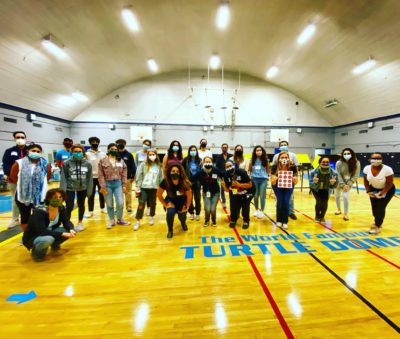The 2020 presidential election saw record participation, with two-thirds of the eligible population voting, the highest turnout since 1900. Although most Oakwood students may be too young to vote, this hasn’t limited their deep engagements with politics, government, and the inner-workings of elections. With Oakwood being in an online-learning mode this past year, teachers have adapted their courses to enable the kind of deep inquiries into contemporary political events that students are accustomed to.
Teddy Varno, chair of the social studies department at the secondary school, teaches an elective for the 11th and 12th grades called Campaigns and Elections. He began the class in 2015 as an Immersion course centered around a simulation of the 2016 presidential election. Students took a field trip to Washington DC, where they met with journalists, interviewed the director of a Super PAC, and spoke with the chair of the Federal Election Commission. “It was pretty fantastic. It was one of the greatest experiences I think I’ve ever had as a teacher,”
Another crucial component of the class is direct civic engagement. 21 Oakwood students served as poll workers in the recent election. This experience, coupled with learning in the virtual classroom, covered major election subjects such as gerrymandering and the electoral college, but also “a different slew of things,” says Teddy, “like provisional balloting, and issues that are really granular, small things that you wouldn’t experience unless you actually did this.”


